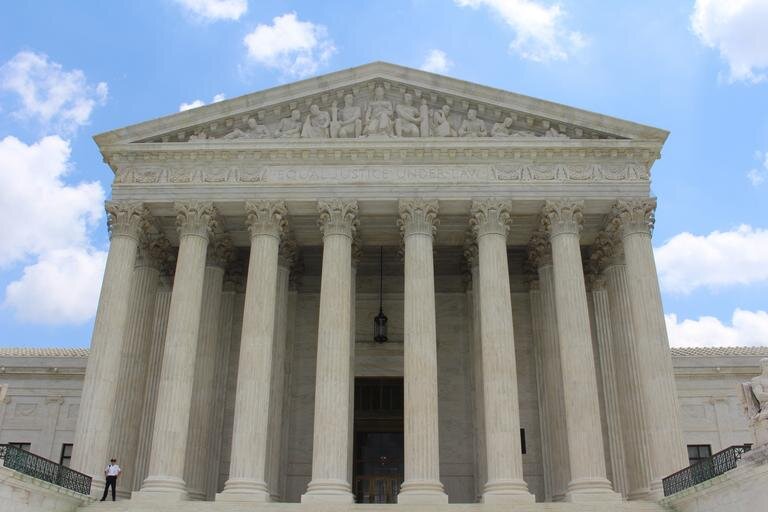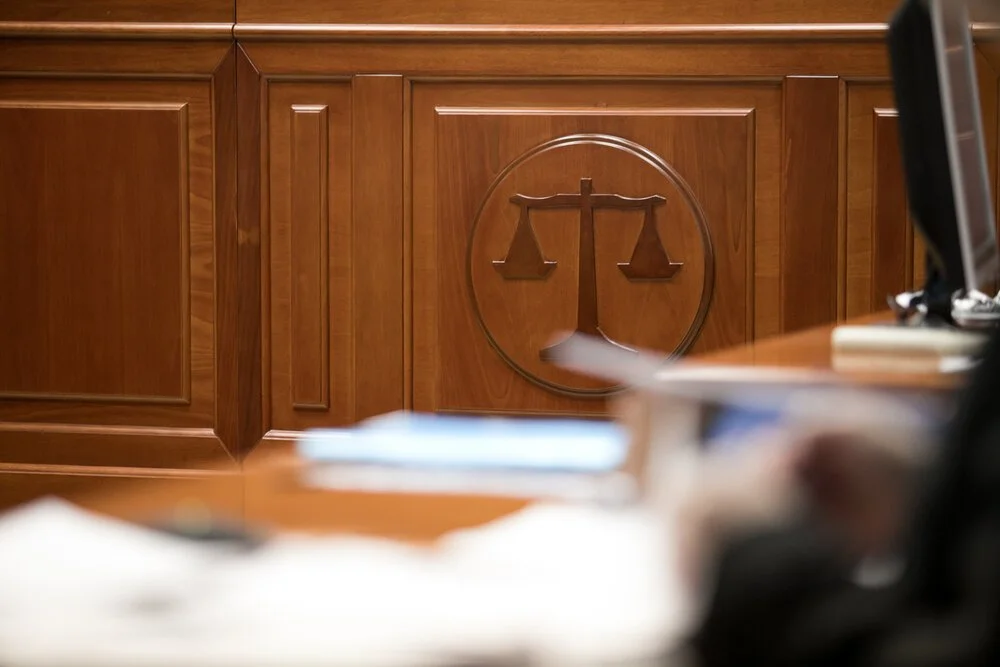As is the case with too many tenants, “Eliza” had a pending eviction action against her, filed in October 2021, of which she was unaware. In early November 2022, VLJ received Eliza's information from the court and initially contacted her to see if she was interested in receiving legal help. Learning that the eviction case threatened her housing stability, Eliza signed up for the Lowenstein Sandler Prudential Tenancy Clinic held in mid-November 2022.
New Jersey Eviction Q&A Panel Discussion
NorthJersey.com is hosting a monthly housing video series to provide advice from a panel of tenant law experts on affordable housing issues. In this video VLJ staff attorney Allison Nolan and fellow panelists discuss the following:
What renters can still be evicted in New Jersey?
When do eviction protections end?
Where can tenants at risk of eviction get help
Click here to read the full NorthJersey.com article.
If you are at risk of being evicted, call (973) 943-4754 to apply for help.
To volunteer to represent tenants facing eviction, click here.
Mandatory NJ landlord-tenant settlements will begin. Here are tenant advocates' concerns
A version of this article appeared on njherald.com
Renters in New Jersey are still protected against lockouts through the end of the year, but starting this month, courts will require mandatory settlement hearings for landlord-tenant cases — and some tenant advocates are worried about the potential impact.
Through such hearings, tenants and landlords meet — primarily online, at a time scheduled by the court — and discuss ways to resolve their cases. The estimated 14,000 cases that have been pending for more than a year will be prioritized, as well as newer cases involving a year's worth of missed rent.
There are consequences if either party doesn't show up. If a landlord fails to appear, the case gets dismissed. If a tenant fails to appear, and the court determines the landlord has made his or her case, the court will enter a default judgment to evict the tenant.
"This order is especially devastating given there are bills on the governor's desk meant to help tenants," said Maria Lopez-Nuñez, deputy director with the Newark-based Ironbound Community Corporation. "I'm worried about those who fail to appear in court. Court hours aren't exactly convenient for working class people, and so many of our tenants don't speak English. Small things like this have devastating consequences."
Attorneys for tenants and renter advocates are worried about how this change could hurt renters and cause confusion about their rights.
Some counties have held voluntary settlement conferences since last summer or heard certain emergency cases, but this will be the first major step in restarting the eviction process since the Supreme Court suspended landlord-tenant trials on March 16, 2020.
Landlords and tenants should expect a notice in the mail at least 10 days before their conference. The courts said they plan to begin sending out these notices within the next two weeks.
Here are some of the advocates' concerns:
Tenants may not understand what's going on
"We want to make really clear that while a settlement conference is mandatory, it doesn't mean they have to settle their case if it's not in their best interest to do so," said Maura Sanders, chief counsel with Legal Services of New Jersey. "Often in these situations, participants don't fully understand. Since it's this formal process, they think this is their only opportunity and they feel pressured to go along with what everyone else is saying."
The state's eviction moratorium is still in effect, meaning renters cannot be kicked out of their homes through the end of the year. So for many tenants, it may not be in their interest to agree to a deal that requires them to move out within 30 days, for example.
In a majority of cases, tenants don't have legal counsel, while landlords do. If renters need a lawyer, they can call Legal Services of New Jersey at 1-888-576-5529.
"The purpose of the mandatory settlement conferences is to encourage the parties to talk, assess the case, dispel misinformation about rental payment obligations and rental assistance, and share accurate information about how to find and access rental assistance," said Peter McAleer, director of communications for the courts.
"The parties are not required to settle and there is no consequence for not settling," he said. "The settlement conference can be adjourned if there is an opportunity for rental assistance."
Related: NJ Supreme Court to Begin Scheduling Settlement Conferences This Month
Pending legislation appears to conflict
The Legislature passed a package of landlord-tenant bills awaiting Gov. Phil Murphy's signature that complicate the court's new order.
Under S3691, if a renter has had an eviction case filed against them for nonpayment of rent or failure to pay a rent increase between March 1, 2020, and Aug. 31, 2021 and they sign a certification, the court would dismiss the case.
"That’s a big concern," said Allison Nolan, a staff attorney with Volunteer Lawyers for Justice. "Some tenants who could be entitled to a dismissal could enter into settlements prematurely not realizing that, or they could have their case entered into a default and not know what to do from there."
McAleer with the New Jersey courts said the Judiciary and Department of Community Affairs, which distributes rental assistance, "will adjust procedures as needed."
Issues with technology
"We have clients that get very disoriented by the online process, and after the conferences are calling us and saying, 'What just happened?'" Sanders said. "So it's going to be really important that the court take extra steps to ensure that people understand and know they have rights throughout this process."
The courts said they would provide technology, including laptops and internet access, at the courthouses for those who need it, and judges can schedule in-person conferences if need be.
"I worry about the tenants who are even too confused to get to the step of asking for technological assistance, who may have tried calling, but the court is inundated with calls and may not connect them with the right department," Nolan said. "A lot of our clients who are the most vulnerable are going to be the ones who have the most difficulty using the technology and accessing anything."
It can hurt tenants who aren't properly served
Ensuring that tenants receive proper notice of an upcoming hearing has always been a hurdle, advocates say.
Landlords and tenants who miss a court proceeding should have a chance to reschedule, according to recommendations from a landlord-tenant committee established by Chief Justice Stuart Rabner.
If tenants miss the settlement, and a judge sides with a landlord who presented evidence at the meeting, a tenant would need to get permission from the landlord in order to challenge the default judgment and present his side, said Lopez-Nuñez.
"It's definitely not a balance of justice here," Lopez-Nuñez said.
It's problematic for both landlords and tenants that they could have cases dismissed or default judgments for missing a settlement hearing, without the chance for a trial, said Khabirah Myers, coordinator for the Office of Tenant Legal Services in Newark.
"It makes it seem like the judiciary is more concerned about expediency and clearing the docket than they are with preserving due process, the right to be heard, and property rights," Myers said.
New Jersey Supreme Court to Begin Scheduling Settlement Conferences This Month
New Jersey's Supreme Court has ordered mandatory settlement hearings in pending landlord-tenant cases and said renters who fail to show up will face an eviction order.
Chief Justice Stuart Rabner's Friday order directs the lower courts to begin scheduling settlement conferences this month prioritizing older cases with the most owed rent or newer cases with more than a year's worth of back rent. He said the courts are facing an enormous backlog that includes 14,000 cases that have been pending for more than a year. Nearly 60,000 evictions were filed between April 2020 and March of this year, according to numbers provided by the courts.
The order came as a surprise to tenant lawyers and advocates who called the consequences cruel and said it would cause confusion since many residents are still waiting for rental assistance. There's also a bill before Gov. Phil Murphy that would end the eviction moratorium earlier depending on people's income and protect tenants from eviction if they certify they applied for help and were financially harmed by the pandemic.
"While I appreciate that there is a backlog and things have to move, it feels as though expediency was prioritized over due process here," said Jessica Kitson, a senior managing attorney for Volunteer Lawyers for Justice. "I'm really disappointed that this is where we are."
Most landlord-tenant trials remain suspended and until now, settlement conferences held remotely between parties were voluntary. Rabner said most of the conferences will continue to take place remotely and the court will provide on-site technology to those who need it. If the parties can't reach an agreement, the case can go to trial; trials are expected to resume Sept. 1.
Landlords who don't show up will have the eviction case dismissed. Tenants who don't appear will have a default judgement entered against them though they won't be physically evicted until the statewide ban on lockouts ends Dec. 31.
Maria Lopez, an organizer with the Ironbound Community Corporation, called the decision catastrophic and said too many tenants will receive default judgements against them. Most don't have legal representation and she said some may not be properly notified of the conference date or may have issues accessing technology.
"During the pandemic we’ve just seen such chasm between the haves and have-nots. We are punishing the most vulnerable," she said. "This seems severe when there are a lot more avenues to be explored in how we are going to resolve this crisis."
Op-Ed: Fix landlord-tenant courts before eviction moratorium ends
Across the country, COVID-19 highlighted long-standing systemic challenges that left many families even more vulnerable in the aftermath of the pandemic. In New Jersey, this was especially true for the state’s eviction process. As an overwhelming number of pending evictions continues to accumulate, the New Jersey Supreme Court has an opportunity to consider changes in landlord-tenant court procedures to make the eviction process fairer for both landlords and tenants, and especially those who do not have attorneys to assist them.
The status of the New Jersey Eviction Moratorium
March 2020 Volunteer of the Month: Mark Heinzelmann
VLJ is pleased to announce Mark Heinzelmann as the March Volunteer of the Month.
Mark started volunteering at VLJ’s Tenancy Clinic soon after starting as an associate in the environmental group at Lowenstein Sandler. Although the clinic is designed to give limited advice to some of Essex County’s most vulnerable tenants, attorneys can choose to stay with a case afterwards. Mark has made that decision on multiple occasions, proving his dedication to legal justice. The results for VLJ clients on cases he’s worked have been overwhelmingly positive.
February 2020 Volunteer of the Month: Wendy Feldman
VLJ is pleased to announce Wendy Feldman, Vice-President, Corporate Counsel at Prudential Insurance Company of America, as February’s Volunteer of the Month.
In the past three years, Wendy has volunteered in many of VLJ’s legal clinics (including expungement, divorce, and bankruptcy), but where she has arguably had the most significant impact is with VLJ’s tenancy clinic.





